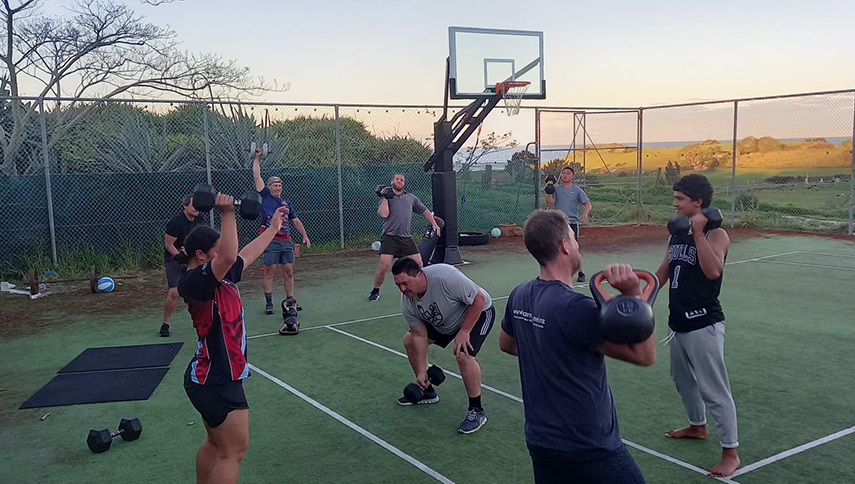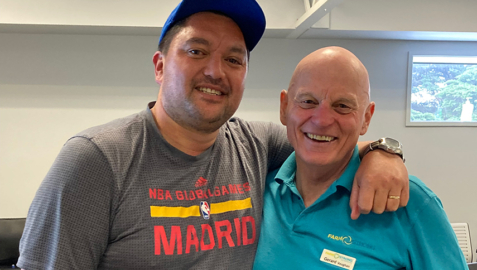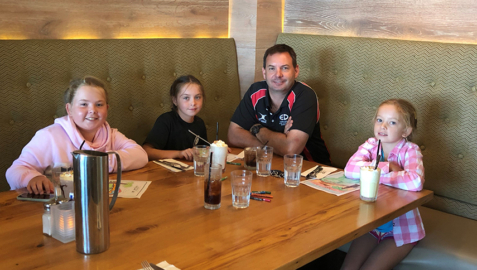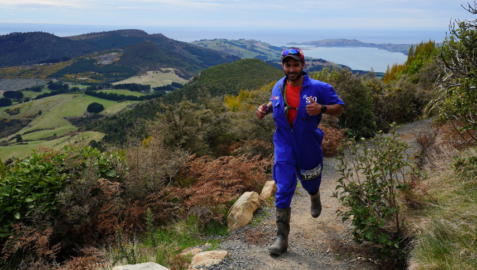
Big Picture Thinking
Module Overview
Bay of Plenty dairy farmer Mohi Beckham-Adams has introduced some innovative ideas to nurture not just his land, but also the people who work on it.
Mohi and his family run a dairy farm milking 490 cows near Pukehina in the Bay of Plenty. They’ve also set aside land to grow avocados and kiwifruit.
Mohi’s path into the industry is more storied than most. Life growing up in Rotorua was hard. “Where I was brought up was pretty much where the story ‘Once Were Warriors’ was written about. My background wasn’t the flashest, but it helped make me the person I am.”
That person grew up determined to prove the doubters wrong. By the mid-noughties Mohi had successfully completed tertiary study and was working long hours at the mill in Kawerau to support his young family. One day a friend asked if he wanted to go farming. He tried it and liked it.
“It was the numbers of farming that appealed to me. I was always into computers back in the day and farming is all maths and science, so it immediately made sense.”
He also enjoyed its variety. “I like farming because you get to do so many things. As an employer you’re a farmer, an electrician, a builder, a social worker at different times during the day. It’s interesting.”
A stint of contract milking brought him back down to earth about the ups and downs of the industry. It was during the years when the milk pay out was low. Mohi found himself putting in long hours for little reward. But his luck took a turn for the better when his brother bought a farm in the area and asked him to help run it. It was a challenge he was up for.
“This farm looks beautiful, but it was very run down. You could probably add a few more ‘verys’ in there too,” he laughs. “When we took over, we had no water, no power and the grass was like cardboard, so our cows did it tough. We started restoring the farm from scratch.”
A big part of the makeover was adopting sustainable farming practices. “We wanted to improve soil health and farm naturally avoiding synthetic fertilisers. Letting the land heal itself, rather than relying on man-made medicine.”
The more natural approach soon paid dividends. “Last year, when moved to once a day milking the predicted drop in production was 10%, but our new methods meant it only dropped 0.5%. We also had great stats for fertility and animal health. So, we’ve put a lot of work into developing this farm’s natural potential and the science shows we’re on target to nail it.”
Prioritising family and wellbeing
The downside is all that hard work began to catch up with Mohi. “My first year and half here, I was so busy running round and didn’t see my family much. Middle of last year I knew something was wrong. I was neck-deep in work and my brother rang up concerned. That really opened my eyes. I guess you could say I had an epiphany.”
Mohi realised he needed to prioritise his family and wellbeing, rather than just focus on the pasture and the herd.
“Sometimes farming is a grind. That’s why you need to give yourself light at the end of the tunnel. So, my brother and I made changes to the farm set-up. The big one was focusing on people as well profit and productivity as one of our core values.”
That meant making more time for activities the family loved like sport and exercise. It was a long way to any gym so Mohi started running ‘boot camps’ on farm a couple of times a week to take a break from routine and freshen up mentally and physically. “We do high intensity training for up to an hour with weights and skipping ropes,” he says.
Soon up to half a dozen locals, including farmers, were joining him. Now he’s building a wellness centre with a gym, sauna and spa in a garage at the back of his house. “I’ve jumped on Trademe and looked for some commercial gym gear. There’s gonna be a bit of bar too so people can get together and have a yarn. Watch this space.”
These days, the farm’s people focus extends well beyond fitness. Mohi’s keen to encourage more Maori into farming. “One of our goals is to build a training facility where young Maori can come and experience farming for a few months. All my workers have been Maori. I’ve got a real heart for Maori to do well in the industry and to grow a skill base to run our own farms.”
In a similar vein, Mohi helps organise a local Maori agriculture cluster with another dozen Maori-owned farms. “It’s our version of a dairy discussion group and it works because we’ve got that cultural connection that gets people yarning. We started with a fish and chip night, now we’re doing farm visits.”
Connecting with these farmers has been great for his own motivation too, he says. “When you share your story with other farmers, you realise how far you’ve come. When you’re stuck on farm, looking at the same cows and paddocks every day, you just don’t appreciate that.”
Which is why he now makes a point of celebrating the end of each season. “We put on a kai for all the workers and neighbours, invite our banker and vet. I want my workers to have a taste of success and not just be workers. I involve them as much as possible in how things are run.”
Focusing on the big picture
Now Mohi’s turning his energy and attention to the traditional farming calendar which he views as something of a tyranny. “I’m a big picture guy. I want to change how we farm so our workers can have summer off. That would mean drying the cows off in December and then calving in February so workers don’t have to holiday in June when the weather’s miserable. Let’s face it, who wouldn’t rather be calving in shorts and a t-shirt rather than wrapped up to the eyeballs in June, slogging away in rain and mud? I’m just doing the numbers to see if we can make that work.”
Mohi dropped into the Farmstrong stand at Fieldays and realised his approach to farming was on the same page.
“I think what Farmstrong does is brilliant. I’m all for it. We want our staff to go home at nights safe and happy so they want to stay and progress in our industry. I think wellness is going to become a big issue for employers. That’s going to be the future of farming and it needs to be more than a two-minute chat at a discussion group.”
“I really enjoy being in business, but farming has to be about more than just profit and productivity. I’ve always been a people person, so now I farm with my family, not just for them. I’ve got these kids and beautiful wife and they’re my focus. That’s how I measure success.”
“If you run the soil into the ground, it’s not going to perform for you. It’s the same with the people. What we’re doing for the soil, we’re now doing for ourselves too.”



